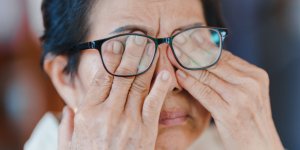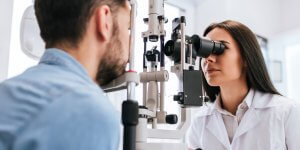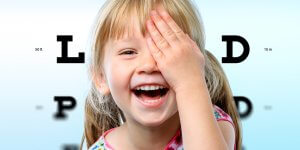
Symptoms and treatment for Accommodative Esotropia
Your child has been diagnosed with Accommodative Esotropia. This is a common condition which tends to occur in children two years of age or older.

What are the symptoms of a cataract?
The most common symptoms of a cataract are: Cloudy or blurry vision. Colors seem faded. Headlights, lamps, or sunlight may appear too bright.

Are there any optical aids for low vision?
Yes. The most important low-vision aid is a proper pair of glasses with an adequate prescription. Low vision glasses with a stronger-than-usual bifocal are often the first reading aid prescribed.

What are my treatment options with diabetic eye disease?
Treatment options depend upon the nature of the diabetic eye disease but can include options from medications to laser surgery.

What is Convergence Insufficiency? And what do I need to know?
Convergence insufficiency (CI) is a common eye muscle coordination problem in which the eyes have difficulty converging when reading or doing close work.

What are some common conditions that affect the cornea?
If you have a corneal injury, an allergy affecting your cornea or a corneal disease or disorder, you could experience pain, a sensitivity to light, reduced vision or blurry vision, redness or inflammation.

Are there different kinds of Age-Related Macular Degeneration (AMD)?
There are two forms of age-related macular degeneration — dry and wet. Wet AMD occurs when abnormal blood vessels behind the retina start to grow under the macula.

What will my vision be like after having Laser Vision Correction?
LASIK and PRK provide excellent results and allow people to perform their everyday tasks with less dependence on corrective lenses.

How can people with diabetes protect their vision?
Vision lost to diabetic retinopathy is sometimes irreversible; however, early detection and treatment can reduce the risk of blindness by 95 percent.

What causes cataracts?
As eyes age, the proteins that make up the lens of your eye can break down and change the tissue. This causes vision to become hazy or unfocused.

What are the symptoms of Glaucoma?
At first, open-angle glaucoma has no symptoms. Glaucoma can develop in one or both eyes. But without treatment, people with glaucoma will slowly lose their peripheral (side) vision.

Preventing eye problems as we age
Many eye problems can be prevented or corrected if you see your family physician regularly, visit your ophthalmologist every one-to-two years and have an eye exam with pupil dilation at least once every year.





